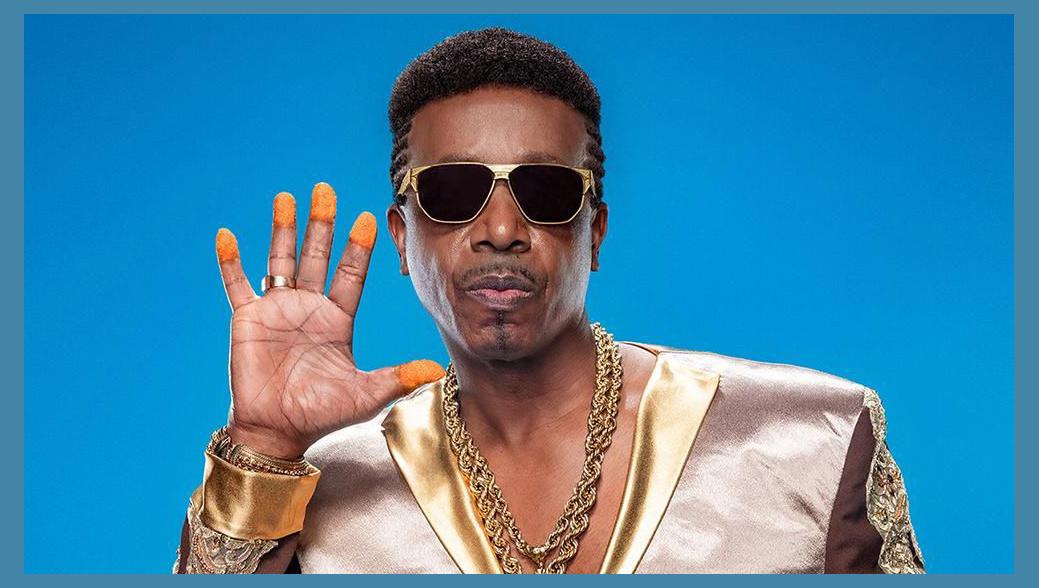 MC Hammer
MC Hammer
MC Hammer: The Enigma of the "Can't Touch This" Era
Stanley Burrell, better known as MC Hammer, ascended to the pinnacle of hip-hop stardom in the late 1980s and early 1990s with his infectious anthem, "U Can't Touch This." However, his meteoric rise was accompanied by a series of challenges and controversies that shaped his legacy.
Early Life and Career Beginnings
Stanley Burrell was born on March 30, 1962, in Oakland, California. From a young age, he displayed an aptitude for music and dance. In the mid-1980s, he embarked on his musical journey as a member of the rap group Oaktown's 357.
Rise to Fame with "U Can't Touch This"
In 1988, MC Hammer's solo career took off with the release of his album "Please Hammer, Don't Hurt 'Em." The album's lead single, "U Can't Touch This," became an instant sensation, topping the Billboard Hot 100 for 21 weeks and selling millions of copies worldwide.
The "Hammer Time" Phenomenon
The success of "U Can't Touch This" propelled MC Hammer into the mainstream consciousness. His signature dance move, the "Hammer Time," became a cultural phenomenon, inspiring countless imitations and parodies. Hammer's charismatic stage presence and elaborate costumes further cemented his status as an entertainment icon.
Financial and Legal Struggles
Despite his astronomical earnings, MC Hammer's extravagant spending and poor financial management led to significant financial problems. In 1996, he filed for bankruptcy, citing debts of over $13 million. His legal woes also included a controversial lawsuit filed by Prince over alleged copyright infringement in "U Can't Touch This."
Controversies and Image Management
MC Hammer's public image was often under scrutiny. His perceived commercialization and his association with the controversial Oakland A's baseball team drew criticism. Some also questioned the authenticity of his "street" persona, accusing him of being out of touch with the urban communities he represented.
Discography and Legacy
MC Hammer released a total of seven studio albums, including the platinum-selling "Let's Get It Started" (1991) and the gold-certified "The Funky Headhunter" (1994). While his subsequent albums failed to match the commercial success of his early work, his impact on hip-hop culture remains undeniable.
Members and Collaborations
MC Hammer's entourage included several talented musicians and dancers. Notable members included his backup singers, the Hammerettes, and the choreographer Miko Michaels, who created the iconic "Hammer Time" dance. Hammer also collaborated with other hip-hop artists, such as Too $hort and Tupac Shakur.
Later Career and Influence
Following his financial and legal struggles, MC Hammer retreated from the limelight. He focused on his Christian faith and released several gospel albums. His music and image have continued to inspire countless artists, from Jay-Z to Bruno Mars.
MC Hammer's legacy is a testament to the transformative power of hip-hop. Despite the challenges he faced, his infectious energy and unforgettable dance moves left an enduring mark on popular culture.
Stanley Burrell, better known as MC Hammer, ascended to the pinnacle of hip-hop stardom in the late 1980s and early 1990s with his infectious anthem, "U Can't Touch This." However, his meteoric rise was accompanied by a series of challenges and controversies that shaped his legacy.
Early Life and Career Beginnings
Stanley Burrell was born on March 30, 1962, in Oakland, California. From a young age, he displayed an aptitude for music and dance. In the mid-1980s, he embarked on his musical journey as a member of the rap group Oaktown's 357.
Rise to Fame with "U Can't Touch This"
In 1988, MC Hammer's solo career took off with the release of his album "Please Hammer, Don't Hurt 'Em." The album's lead single, "U Can't Touch This," became an instant sensation, topping the Billboard Hot 100 for 21 weeks and selling millions of copies worldwide.
The "Hammer Time" Phenomenon
The success of "U Can't Touch This" propelled MC Hammer into the mainstream consciousness. His signature dance move, the "Hammer Time," became a cultural phenomenon, inspiring countless imitations and parodies. Hammer's charismatic stage presence and elaborate costumes further cemented his status as an entertainment icon.
Financial and Legal Struggles
Despite his astronomical earnings, MC Hammer's extravagant spending and poor financial management led to significant financial problems. In 1996, he filed for bankruptcy, citing debts of over $13 million. His legal woes also included a controversial lawsuit filed by Prince over alleged copyright infringement in "U Can't Touch This."
Controversies and Image Management
MC Hammer's public image was often under scrutiny. His perceived commercialization and his association with the controversial Oakland A's baseball team drew criticism. Some also questioned the authenticity of his "street" persona, accusing him of being out of touch with the urban communities he represented.
Discography and Legacy
MC Hammer released a total of seven studio albums, including the platinum-selling "Let's Get It Started" (1991) and the gold-certified "The Funky Headhunter" (1994). While his subsequent albums failed to match the commercial success of his early work, his impact on hip-hop culture remains undeniable.
Members and Collaborations
MC Hammer's entourage included several talented musicians and dancers. Notable members included his backup singers, the Hammerettes, and the choreographer Miko Michaels, who created the iconic "Hammer Time" dance. Hammer also collaborated with other hip-hop artists, such as Too $hort and Tupac Shakur.
Later Career and Influence
Following his financial and legal struggles, MC Hammer retreated from the limelight. He focused on his Christian faith and released several gospel albums. His music and image have continued to inspire countless artists, from Jay-Z to Bruno Mars.
MC Hammer's legacy is a testament to the transformative power of hip-hop. Despite the challenges he faced, his infectious energy and unforgettable dance moves left an enduring mark on popular culture.